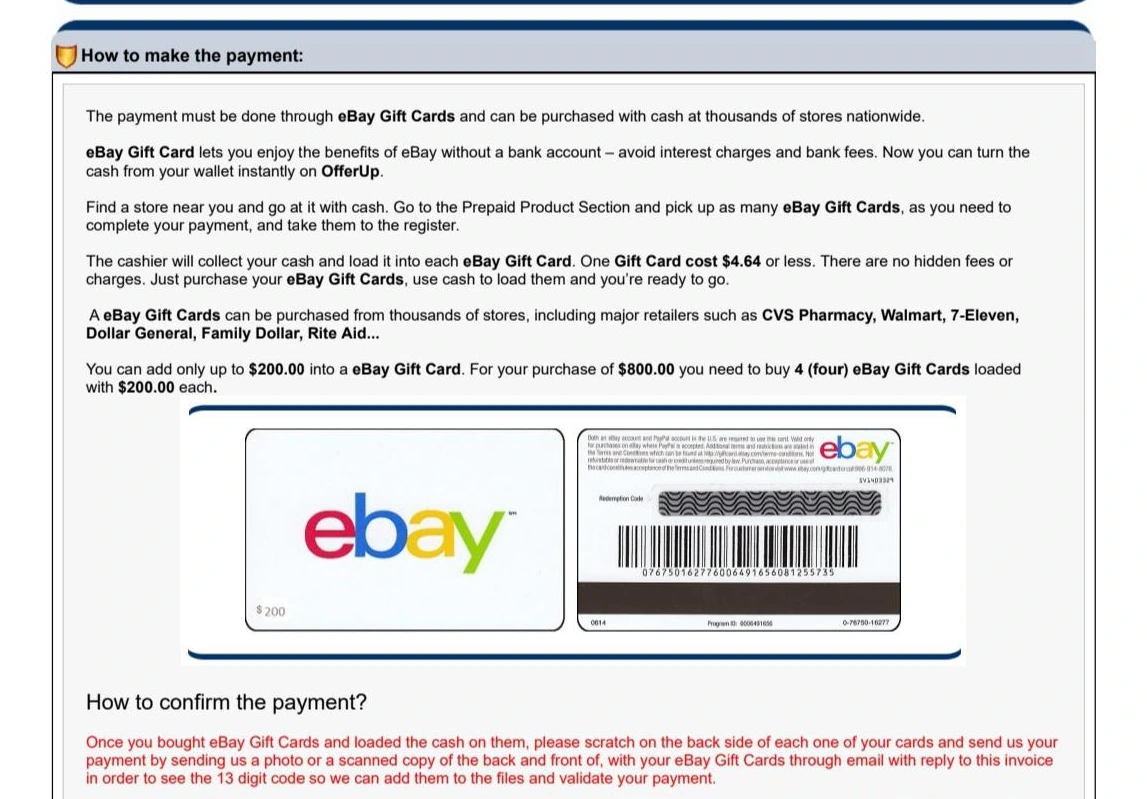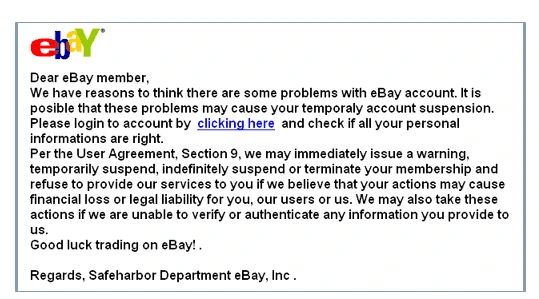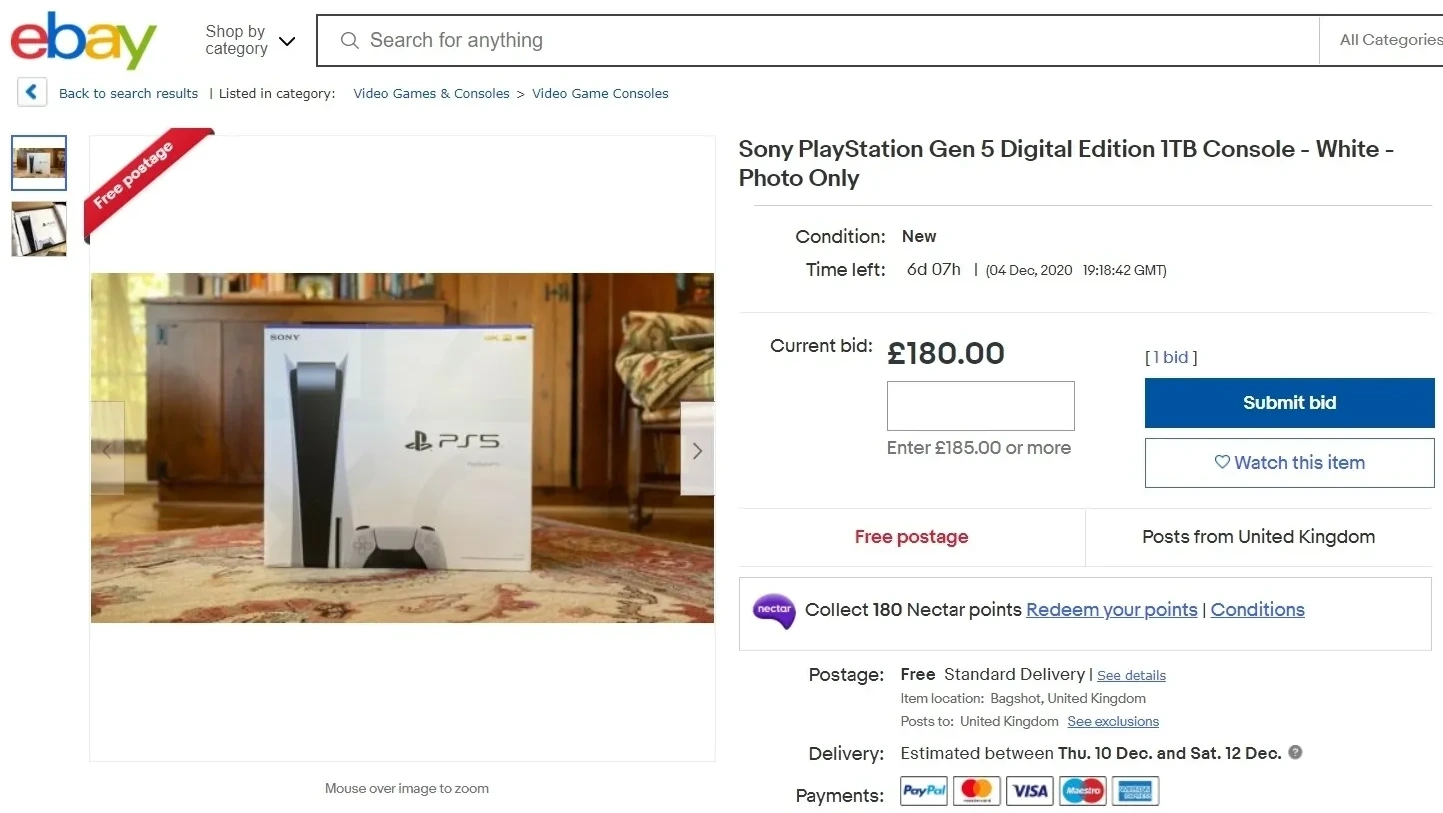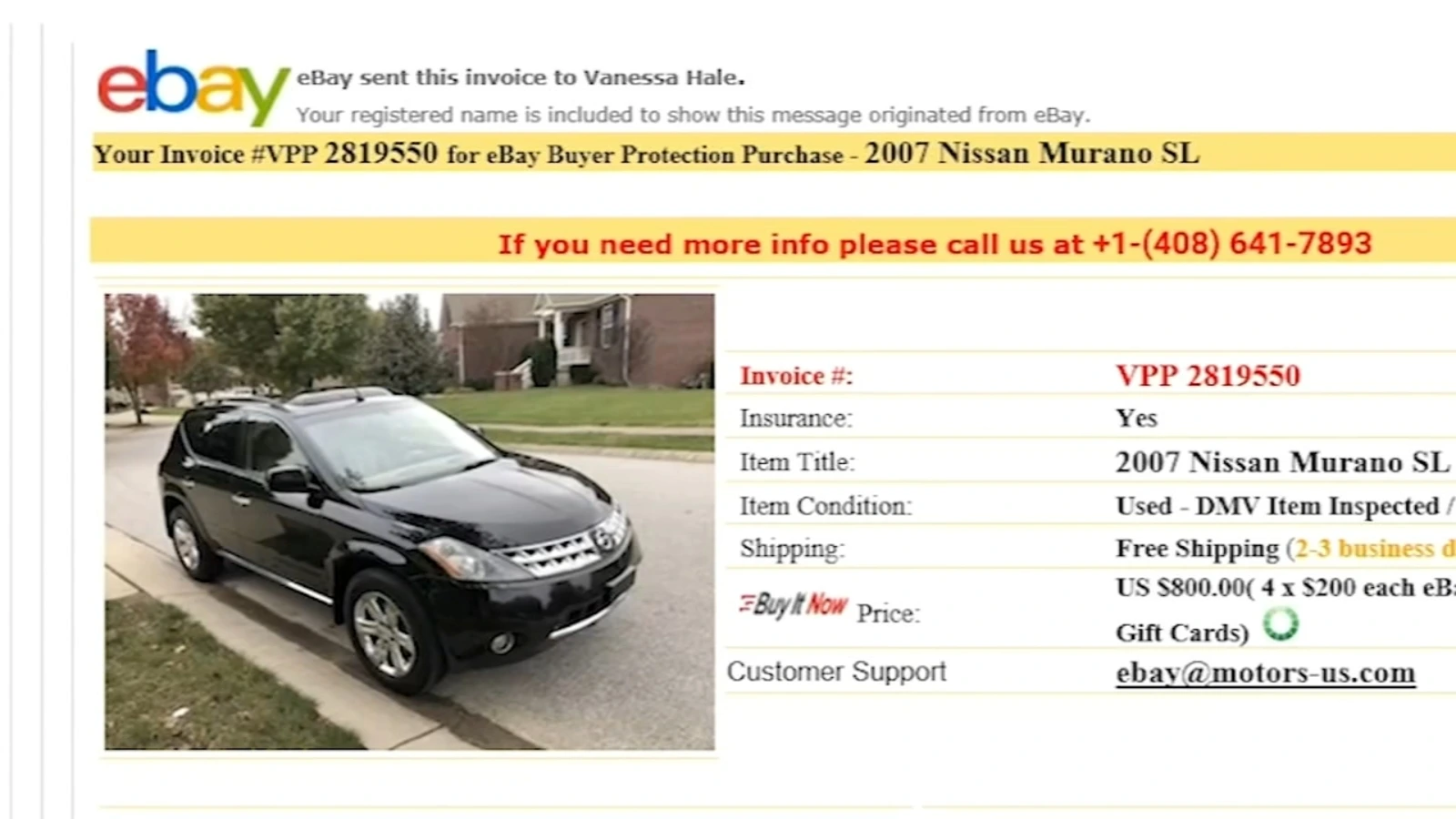In the world of online shopping, eBay stands out as a popular hub for buyers and sellers alike. However, like any online platform, it’s crucial to be aware of the risks and quickly recognize a potential eBay scam. Only then can you buy or sell things through the platform in relative safety.
In this quick guide, we aim to shed some light on these so-called eBay scams and how they work. But more importantly, we’ll go over some tips on how to not become thenext victim.
Let’s jump in!
Is eBay safe?
Now that we’ve discussed some of the most common eBay scams, you may be wondering if eBay is even a safe platform to buy and sell items.
The short answer is yes — eBay is relatively safe to use, when used wisely. The platform itself has implemented numerous measures to protect both buyers and sellers from scams and fraudulent activities:
- eBay’s Money Back Guarantee ensures buyers can get their money back if a product isn’t as described.
- eBay Seller Protection plans cover sellers if their buyer fails to pay.
- eBay’s feedback system gives users an insight into the history of their potential trading partners, allowing them to make informed decisions.
However, as you may have already realized, even with these protections in place, eBay scammers can still find ways to take advantage of unsuspecting users. Therefore, it’s essential to stay vigilant and be aware of potential red flags when buying or selling on eBay.
By following the tips and advice outlined in this guide, you can significantly reduce your chances of falling victim to an eBay scam.
Why is it important to learn about eBay scams?
First things first – why should you invest time in understanding eBay scams? Is the issue really that significant? The simple answer is “yes.” While eBay has implemented measures to prevent and combat fraud, it’s impossible for the platform to eliminate the problem completely.
According to the 2022 Internet Crime Report published by the FBI, cyber-enabled crimes resulted in reported losses exceeding $10.3 billion for that year alone. Although the report doesn’t specifically mention eBay, it’s safe to assume that a portion of those losses can be attributed to users of popular online marketplaces such as the topic of this guide.
If you are an avid user of eBay, then it’s vital for you to educate yourself about the scams proliferating on the platform. Learn how to recognize them and take necessary precautions to safeguard yourself from financial losses.
How to spot a scam on eBay?
So, to the next question — how can one identify scams on eBay? Well, the following are some red flags that you’ll definitely want to keep in mind:
- If an item is priced way below its market value, then it’s cause for concern.
- Be cautious when dealing with sellers who have very few reviews or negative feedback.
- If a seller insists on completing the transaction off eBay, then it may well be a sign of fraud.
- High-pressure sales tactics: Sellers that resort to this may be trying to rush you into making a decision without having the time to think clearly.
Above all, trust your instincts — if an offer appears too good to be true, then it likely is!
In the following sections, we will explore types of fraud that scammers can employ to fool unsuspecting users. The more you understand these scams and how they operate, the better equipped you’ll be to recognize and avoid them.
7 Common eBay Scams
Of course, while it’s helpful to know what to look out for, nothing beats going over specific examples and how a particular scam works. That way, it’s easier for you to spot and avoid them when you see them occurring in “the wild.”
eBay gift card scams
eBay gift cards are one of the things that scammers can “weaponize” to trick users into sending them money. In these scams, sellers may ask buyers to purchase eBay gift cards as a form of payment for the items.
The scam lies in the fact that once the buyer reveals the gift card numbers to the seller, the seller can immediately scam the buyer by using the gift card and never sending the promised items.
Here’s how this scheme typically unfolds:
1. A seller (the scammer) publishes a listing for a product at an unbelievably low price.
2. Intrigued by the deal, a buyer (the victim) makes the purchase.
3. The seller then asks for payment through eBay gift cards, citing an excuse as to why they can’t accept the supported payment method — PayPal, credit cards, debit cards, Apple Pay, etc.
4.The buyer buys the gift cards and sends the redemption codes to the seller.
5. The seller redeems the gift cards and then disappears. No product is shipped out to the buyer.
Here’s an example of how that interaction might look like:
To protect yourself from falling victim to this scam, it’s important to keep in mind that eBay gift cards are for one’s personal use only. It should never be used as a form of payment.
eBay buyer scams through bogus claims
Scammers can attempt to defraud sellers through fabricated claims. This scam basically involves asserting that they never received an item when it was shipped or claiming that the item was damaged upon arrival. A scammer might even send back a different item than what was originally purchased.
Here is how it generally works:
- The buyer purchases an item from a seller.
- After receiving the item, the buyer claims that it wasn’t delivered or was damaged upon receipt.
- The buyer then files a dispute with eBay, who often sides with the buyer in these situations.
- As a result, the seller is forced to provide a refund, resulting in a loss.
To protect yourself against this type of scam, make sure to keep all communication with buyers within the eBay platform. Additionally, keep records of tracking numbers, delivery confirmations, and any other evidence that shows the item was shipped and received.
eBay email scams
eBay email scams are another common tactic used by fraudsters. This type of scam involves the use of fraudulent emails that appear to be from eBay, but are actually designed to steal your personal information. Here’s how it usually unfolds:
- The scammer sends an email designed to look like an official eBay message.
- The email might ask you to confirm your account information or update your password.
- The email includes a link to a site that looks like eBay, but is actually a fake site designed to collect your personal information.
- If you enter your information, the scammer can use it to take over your eBay account or commit identity theft.
Below is an example of how such an email would look like:
To avoid falling victim to email scams, always check the sender’s email address to ensure it’s from an official eBay domain. eBay will never ask for your personal information via email, so be suspicious of any email that does.
If you’re unsure about an email, log into your eBay account directly through your browser and check your messages there. If the message isn’t in your eBay inbox, it’s likely a scam.
eBay shipping scam
Another common fraudulent scheme to be aware of are eBay shipping scams. This type of fraud attempt can target both buyers and sellers.
In the case of buyers, they may purchase an item that never arrives, or send something totally different. From the seller’s perspective, they may ship an item to a buyer, only to receive a chargeback from the payment processor claiming that the item was never delivered.
We’ve already discussed in an earlier section how this scenario plays out when perpetrated by the buyer (eBay buyer scams). So, for the next example, we’ll describe how it may look like when the scam is initiated by the seller:
- The buyer purchases an item from a seller and makes a payment.
- After receiving the payment, the seller ships out an empty box or a completely different item than what was advertised.
- The buyer receives the package, which either contains nothing or something completely different.
While eBay does offer a money-back policy, it’s no guarantee that you’ll be protected from this type of scam. For one thing, the timeframe may have passed by the time you realize you’ve been scammed. Additionally, if the seller can provide a tracking number showing that an item was delivered to your address, eBay may rule in their favor.
To avoid this type of scam, sellers should use a shipping service that provides detailed delivery confirmation. It’s also a good practice to require a signature for high-value items. As for buyers, it’s a good idea to always check the seller’s feedback and ratings before making a purchase. If anything seems suspicious, trust your instincts and consider looking for another seller.
eBay “Photo Only” Scam
The “Photo Only” scam is a deceptive tactic used by unscrupulous sellers to trick buyers into paying for items they won’t receive or receiving items that are vastly different from what was advertised. Here’s how this scam typically works:
- The seller lists an item for sale but includes in the fine print that the buyer is only purchasing a picture of the item, not the actual item itself.
- The buyer, not noticing the fine print, purchases the item believing they’re getting a great deal.
- The seller sends the buyer a photograph of the item instead of the actual item.
- Since the listing was accurate (though misleading), eBay may side with the seller in a dispute, leaving the buyer with a photo instead of the expected item.
Below is an example of what such a listing might look like:
Notice how it says “Photo Only” in the title, but it’s easy to overlook when browsing through listings quickly.
To protect yourself from this scam, always read the item description carefully before making a purchase, ensuring you’re bidding on the actual item, not just a photo.
It’s also worth mentioning that this type of eBay scam is not only limited to pictures. Scammers can get very creative when it comes to ripping off unsuspecting users. Some may post variations of this deceptive fine print such as “box only” or “manual only” to trick buyers into thinking they’re bidding on the full product.
eBay counterfeit scam
As the name implies, counterfeit scams involve the sale of fake or replica items, often at a much lower price compared to the genuine version. These scams not only defraud buyers but also hurt legitimate sellers who may unknowingly purchase and resell these counterfeit products.
To avoid falling victim to this type of scam, it’s important to be cautious when purchasing high-end or designer items on eBay. Do your research on the seller and check their ratings and reviews. If possible, request for a certificate of authenticity or proof of purchase from the seller before making a purchase.
eBay vehicle purchase protection scam
The Vehicle Purchase Protection (VPP) scam is a fraudulent scheme that exploits eBay’s Vehicle Purchase Protection program.
Here’s how it generally happens:
- The scammer lists a vehicle for sale, typically at a price that seems too good to be true.
- The unsuspecting buyer contacts the seller, who then claims that the transaction will be protected under eBay’s Vehicle Purchase Protection program.
- The scammer sends an email to the buyer that appears to be from eBay, confirming that the vehicle is eligible for the protection program. The seller then requests payment via wire transfer or gift cards instead of through eBay’s secure payment system.
- The buyer, thinking they’re protected, proceeds with the transaction and sends the payment to the seller.
- After receiving the payment, the scammer disappears, and the buyer is left with no vehicle and loses their money.
Below is an example of what that fake email could look like:
Notice how it’s priced way below market value, and how the seller requests payment through gift cards. These are dead giveaways of a scam.
To avoid this scam, always conduct vehicle purchases through eBay’s official channels and never send payments outside of the platform. More importantly, when it comes to vehicles, remember this rule — never pay for a vehicle before you’ve seen it in person and verified its authenticity.
How to report scam on eBay?
If you spot a scam or became a victim of this scam, follow this instructions. Here’s a concise step-by-step guide to report a scam on eBay:
-
Go to the Item or Message:
- Find the suspicious listing or message in your eBay account.
-
Report an Item:
- On the listing page, scroll to the bottom, and click “Report item”.
- Select a reason like “Fraudulent listing,” and follow the prompts to submit.
-
Report a Message:
- Open the message, click the three dots (“More options”), and choose “Report”.
- Select the reason and submit.
-
Use the Resolution Center (if applicable):
- Go to eBay Resolution Center to report scams involving transactions.
-
Contact eBay Support:
- If necessary, go to the Help & Contact page or tweet @AskeBay for assistance.
FAQs
What to do if you get scammed on eBay?
If you suspect that you have been scammed on eBay, the first thing to do is to contact the seller and try to resolve the issue directly with them. If that doesn’t work, you can open a dispute with eBay’s Resolution Center.
Will eBay refund me if I get scammed?
Yes, but only if you abide by the platform’s policies. For buyers, that means paying for the item through eBay’s secure payment system,not outside of it. For sellers, that means shipping the item to the buyer’s confirmed address and providing a valid tracking number.
How do I protect myself from scams on eBay?
To protect yourself from eBay scams, there is one rule of thumb that applies to both buyers and sellers — always use eBay’s official channels and never process transactions outside the platform. Learn about eBay’s policies and how their security policies work. If you’re being asked to do something out of the norm, then it’s likely a scam.
